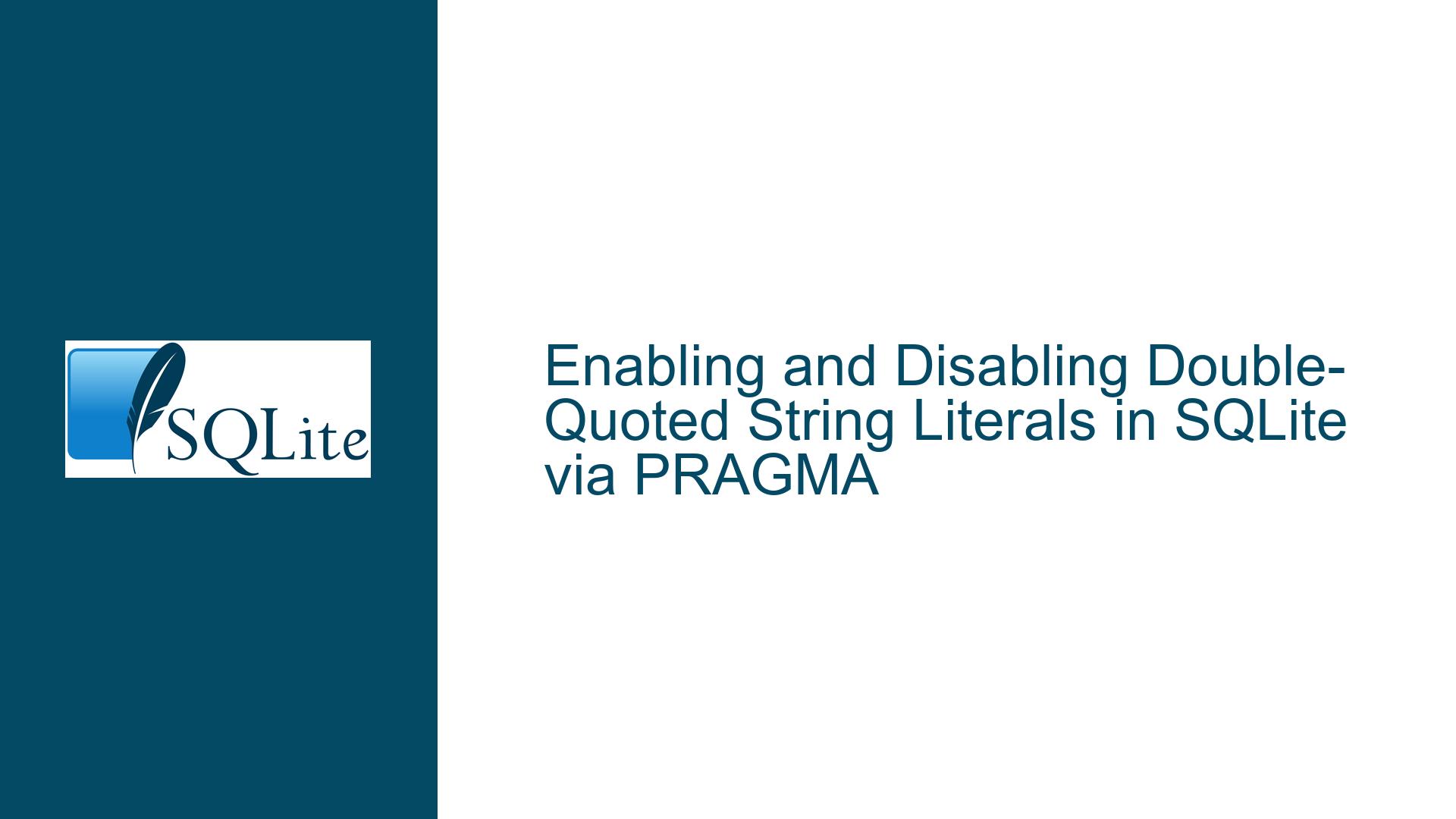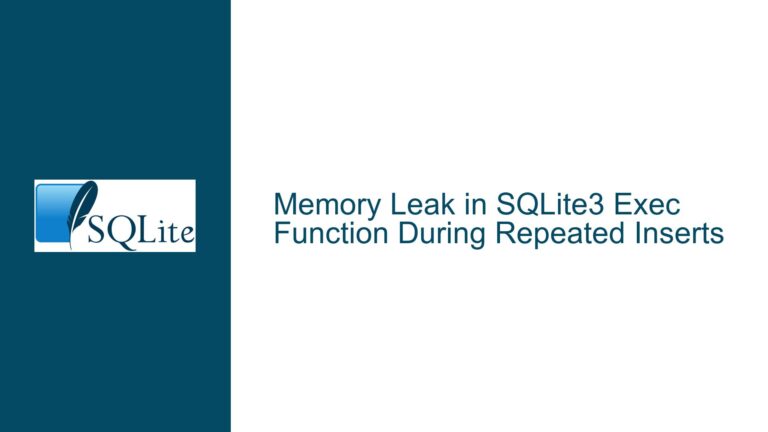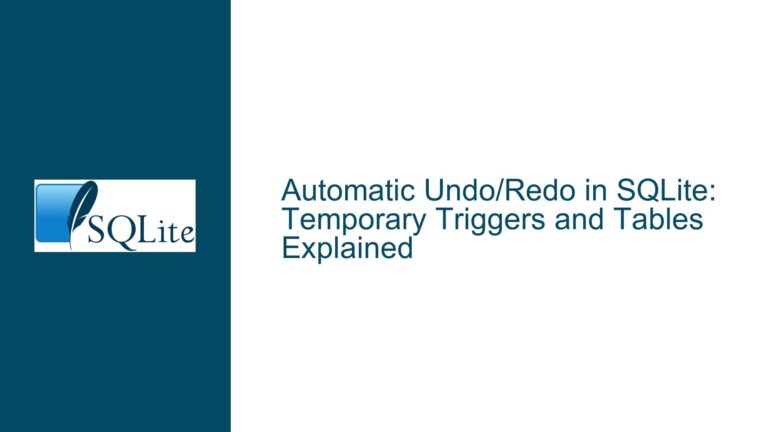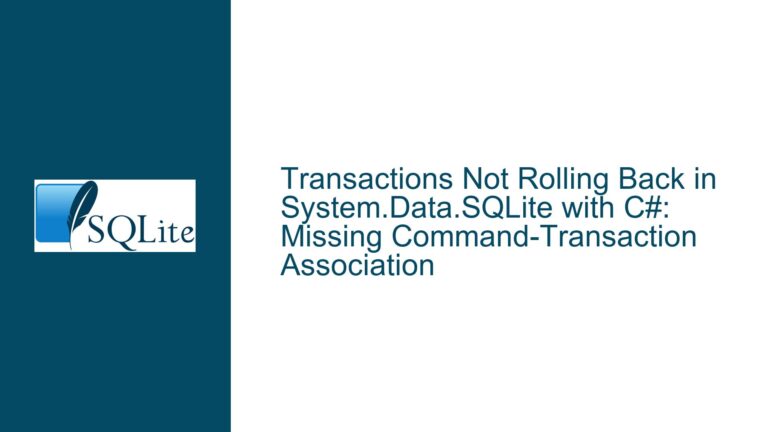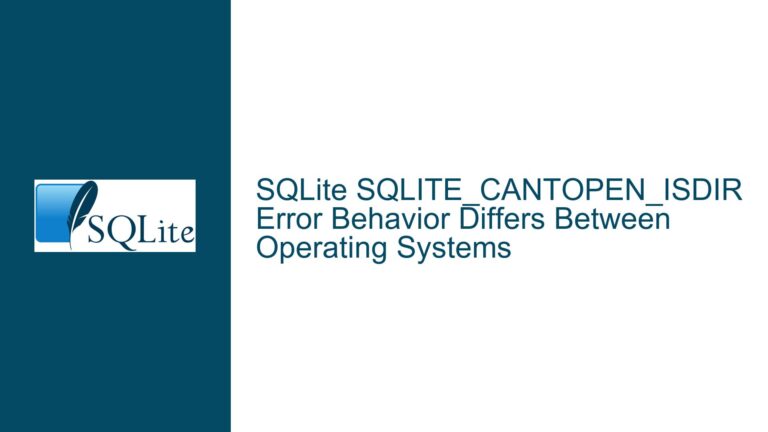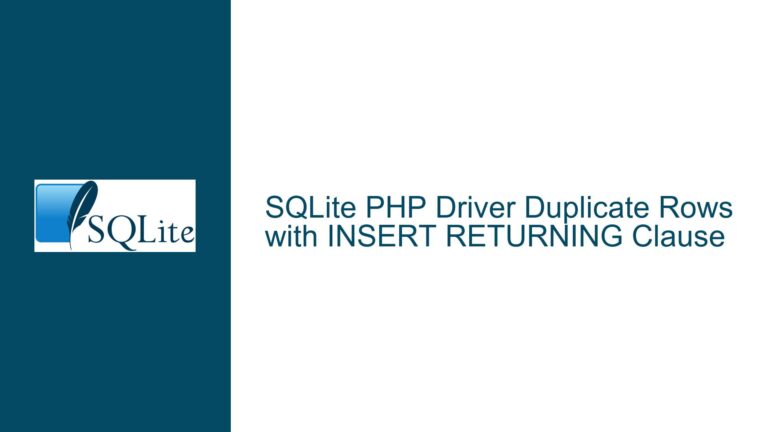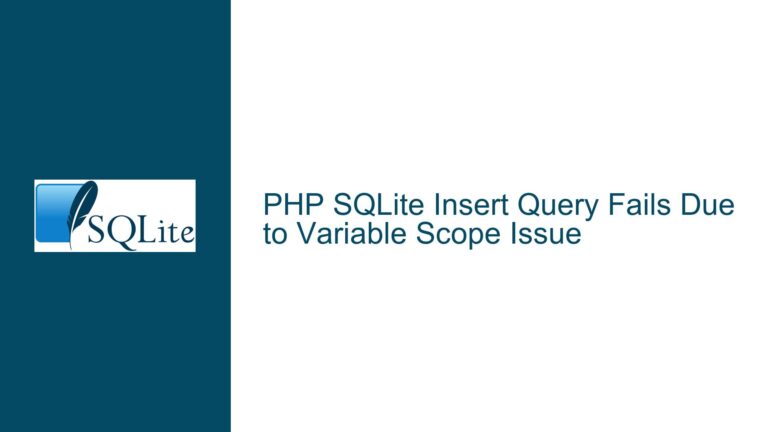Enabling and Disabling Double-Quoted String Literals in SQLite via PRAGMA
Understanding Double-Quoted String Literals (DQS) and Their Impact on SQLite
Double-Quoted String Literals (DQS) in SQLite refer to the interpretation of double-quoted identifiers as string literals rather than as identifiers. This behavior is controlled by two compile-time flags: SQLITE_DQS_DDL and SQLITE_DQS_DML. These flags determine whether double-quoted strings are treated as string literals in Data Definition Language (DDL) and Data Manipulation Language (DML) statements, respectively. By default, SQLite treats double-quoted strings as identifiers, which aligns with the SQL standard. However, some applications or libraries may rely on the non-standard behavior of treating double-quoted strings as literals, leading to compatibility issues.
The core issue revolves around the inability to toggle these flags at runtime using a PRAGMA statement. Currently, these flags are set at compile time, meaning that once SQLite is built, the behavior of double-quoted strings cannot be changed without recompiling the library. This limitation poses challenges for users who rely on pre-built libraries (e.g., Python’s sqlite3 module or Java’s JDBC driver) that are compiled with specific DQS settings. Without a runtime mechanism to toggle these flags, users are forced to either accept the default behavior or rebuild SQLite with custom settings, which is not always feasible.
The discussion proposes adding PRAGMA statements to control the DQS flags at runtime. This would allow users to enable or disable the interpretation of double-quoted strings as literals without needing to recompile SQLite. The proposed PRAGMA statements, dqs_ddl and dqs_dml, would provide fine-grained control over the behavior of double-quoted strings in DDL and DML statements, respectively. This feature would be particularly useful for users who need to work with legacy code or third-party libraries that rely on non-standard behavior.
Potential Challenges and Considerations in Implementing DQS PRAGMA Statements
Implementing PRAGMA statements to control DQS flags at runtime introduces several challenges and considerations. First, there is the question of backward compatibility. Changing the behavior of double-quoted strings at runtime could break existing applications that rely on the current behavior. For example, an application that expects double-quoted strings to be treated as identifiers might fail if the behavior is changed to treat them as literals. Therefore, any implementation must carefully consider the impact on existing code and provide clear documentation to avoid unintended consequences.
Second, there is the issue of thread safety. SQLite is designed to be thread-safe, and any changes to its behavior at runtime must ensure that they do not introduce race conditions or other threading issues. The proposed PRAGMA statements would need to be implemented in a way that guarantees consistent behavior across all threads accessing the same database connection. This might require additional synchronization mechanisms or restrictions on when the PRAGMA statements can be used.
Third, there is the question of performance. Adding runtime checks for DQS flags could introduce overhead, particularly in applications that execute a large number of SQL statements. The implementation must be efficient to avoid negatively impacting performance. This might involve optimizing the code paths that handle double-quoted strings or providing a way to cache the DQS settings to reduce the frequency of runtime checks.
Finally, there is the issue of testing and documentation. Any new feature in SQLite must be thoroughly tested to ensure that it works as expected and does not introduce regressions. The proposed PRAGMA statements would require comprehensive test cases to cover various scenarios, including different combinations of DQS settings, concurrent access, and edge cases. Additionally, clear and detailed documentation would be needed to explain the new PRAGMA statements, their behavior, and any potential pitfalls.
Step-by-Step Guide to Implementing and Using DQS PRAGMA Statements
To implement the proposed PRAGMA statements for controlling DQS flags at runtime, follow these steps:
Modify the PRAGMA Handling Code: The first step is to modify the PRAGMA handling code in SQLite to support the new
dqs_ddlanddqs_dmlstatements. This involves adding entries to thepragma.hfile, as shown in the discussion. Each entry specifies the name of the PRAGMA, its type, flags, and the corresponding compile-time flag (SQLITE_DQS_DDLorSQLITE_DQS_DML). ThePragTyp_FLAGtype indicates that the PRAGMA is a boolean flag, and thePragFlg_Result0andPragFlg_NoColumns1flags control how the PRAGMA is processed.Update the SQLite Parser: The SQLite parser must be updated to recognize the new PRAGMA statements. This involves modifying the grammar rules in the parser to include the
dqs_ddlanddqs_dmlkeywords. The parser should also be updated to handle the new PRAGMA statements in the same way as other boolean flags, ensuring consistent behavior.Implement Runtime Flag Handling: The core of the implementation involves adding code to handle the DQS flags at runtime. This requires modifying the SQLite engine to check the current state of the DQS flags before processing double-quoted strings. The implementation should ensure that the flags are checked efficiently, with minimal impact on performance. This might involve adding a new field to the
sqlite3structure to store the current DQS settings and updating the relevant code paths to use this field.Add Test Cases: Comprehensive test cases must be added to verify the behavior of the new PRAGMA statements. These tests should cover various scenarios, including enabling and disabling the DQS flags, using the flags in different types of SQL statements (DDL and DML), and testing the behavior in multi-threaded environments. The test cases should also verify that the PRAGMA statements do not introduce regressions or break existing functionality.
Update Documentation: The SQLite documentation must be updated to include information about the new PRAGMA statements. This includes adding entries to the PRAGMA documentation, explaining the purpose and behavior of the
dqs_ddlanddqs_dmlstatements, and providing examples of how to use them. The documentation should also highlight any potential issues or limitations, such as the impact on backward compatibility and thread safety.Submit the Patch: Once the implementation is complete and thoroughly tested, the patch can be submitted to the SQLite development team for review. The patch should include all the necessary changes to the code, test cases, and documentation. The submission should also include a detailed explanation of the changes, the rationale behind them, and any potential impact on existing applications.
Address Feedback and Iterate: After submitting the patch, be prepared to address feedback from the SQLite development team. This might involve making additional changes to the implementation, adding more test cases, or clarifying the documentation. Iterate on the patch until it meets the team’s standards and is ready to be merged into the main SQLite codebase.
By following these steps, you can implement the proposed PRAGMA statements to control DQS flags at runtime, providing users with greater flexibility and compatibility when working with double-quoted strings in SQLite. This feature will be particularly valuable for users who rely on pre-built libraries or need to work with legacy code that assumes non-standard behavior.
